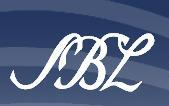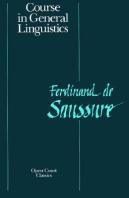Earlier this year, the Society of Biblical Literature posted the results of a member profile survey they conducted in January 2019. Among other interesting statistics, we wanted to highlight a particular one that stood out for us.
 While the various expertises of its members were too large and complex to reproduce in the profile summary, the survey concluded that, among the most frequently selected methods or approaches to studying the Bible, philology of Greek and philology of Hebrew topped the list (p. 7 of the summary). As both of us have worked in Greek linguistics for a number of years (Stan obviously for much, much longer), this finding is perplexing for a number of reasons. This is not a criticism of SBL per se (although we do think that they probably should have refined their survey to be more precise), but rather a reflection of our skepticism regarding those who may have marked “philology of Greek” as their main method or approach.
While the various expertises of its members were too large and complex to reproduce in the profile summary, the survey concluded that, among the most frequently selected methods or approaches to studying the Bible, philology of Greek and philology of Hebrew topped the list (p. 7 of the summary). As both of us have worked in Greek linguistics for a number of years (Stan obviously for much, much longer), this finding is perplexing for a number of reasons. This is not a criticism of SBL per se (although we do think that they probably should have refined their survey to be more precise), but rather a reflection of our skepticism regarding those who may have marked “philology of Greek” as their main method or approach.
First, we wonder what is meant by use of the term philology, and what those indicating this meant when they responded. We of course know that philology technically is defined as the study of how language has historically developed (sometimes called historical linguistics), but there seem to be other uses of the term philology out there. It may refer to a more general study of the structure and development of language and relationships between languages, or to an even more general study of literature and related disciplines. It is even more difficult to determine what is meant by philology in this survey, since Greek and Hebrew philology are the only two mentioned in the summary. If there were other language-related approaches used by SBL members, we might conclude then that a particular branch of linguistics, philology, was used (i.e., historical linguistics). But if this was the only language-related approach, we would probably conclude that Greek language/linguistics was probably meant. In any case, the language (no pun intended) could be clearer in this survey. As it stands, we don’t really know what it is that respondents were indicating in their responses, and we are not sure what the SBL survey actually indicates.
 Second, if we grant that philology in this survey refers to the study of the historical development of languages, then this means that Greek studies within New Testament studies is still predominantly working within a paradigm from about a century ago. The comparative historical period of language study, which succeeded the rationalist period of the mid-seventeenth to the early-nineteenth centuries, developed in the early-nineteenth century and continued to be the paradigm for language study until publication of Saussure’s Course in General Linguistics in 1916 (but not in English until 1959) and the work of the Prague School of Linguistics. The comparative historical paradigm is dominated by questions of historical comparison between and among languages, and it was the period in which the many genetic relations among languages came to be recognized (especially the Indo-European languages). The rationalist period before that was dominated by logic, rationalism, and empiricism. What is lacking in these earlier periods, as distinct from the rise of modern linguistics, is the emphasis upon synchrony over diachrony and hence study of language as system, rather than isolated elements. The unfortunate truth is that many Greek teachers still use grammars that reflect rationalist principles (e.g., most first-year grammars and some of the best known intermediate grammars) or comparative historicism (e.g. BDF, Moulton, Robertson, and their descendants, such as Dana and Mantey). There are good reasons that modern linguistic principles emerged in language study, and in many respects, even if not in all, they represent a significant shift in the study of language. One of the unfortunate results of this study may be its indication that New Testament scholars are unaware of the advent of modern linguistics and what it offers to study of the Greek New Testament.
Second, if we grant that philology in this survey refers to the study of the historical development of languages, then this means that Greek studies within New Testament studies is still predominantly working within a paradigm from about a century ago. The comparative historical period of language study, which succeeded the rationalist period of the mid-seventeenth to the early-nineteenth centuries, developed in the early-nineteenth century and continued to be the paradigm for language study until publication of Saussure’s Course in General Linguistics in 1916 (but not in English until 1959) and the work of the Prague School of Linguistics. The comparative historical paradigm is dominated by questions of historical comparison between and among languages, and it was the period in which the many genetic relations among languages came to be recognized (especially the Indo-European languages). The rationalist period before that was dominated by logic, rationalism, and empiricism. What is lacking in these earlier periods, as distinct from the rise of modern linguistics, is the emphasis upon synchrony over diachrony and hence study of language as system, rather than isolated elements. The unfortunate truth is that many Greek teachers still use grammars that reflect rationalist principles (e.g., most first-year grammars and some of the best known intermediate grammars) or comparative historicism (e.g. BDF, Moulton, Robertson, and their descendants, such as Dana and Mantey). There are good reasons that modern linguistic principles emerged in language study, and in many respects, even if not in all, they represent a significant shift in the study of language. One of the unfortunate results of this study may be its indication that New Testament scholars are unaware of the advent of modern linguistics and what it offers to study of the Greek New Testament.
Third, if we grant that philology in this survey refers to a more general study of language, we are even more perplexed, since a vast majority of biblical scholars from our experiences do not seem to be interested in Greek linguistics at all. Our conclusion is drawn for several reasons. We see comparatively little scholarly work being done in Greek language and linguistics. One tour through the bookstore at any annual SBL meeting supports this contention. How can a method be the most frequently used method if there is very little published work demonstrating it? We also see a decline in interest in the Greek language itself, with fewer and fewer scholars who are competent in handling grammatical and linguistic concepts in Greek studies—many commit the same Barrian fallacies, for example, that have been identified over 50 years ago. A common complaint of my (Stan’s) publications is that some of them are too technical and inaccessible for the average professor and graduate student (which is a sad commentary on the technical ability of some students and professors). We also note relatively low attendance in the Greek language and linguistics sections at the annual SBL meetings, as well as low percentages of papers on Greek language and linguistics at the annual and regional SBL meetings. So we wonder how philology of Greek (or Greek linguistics) would be the most frequently cited method or approach used by SBL members! As an anecdote, when I (Dave) started to prepare for PhD studies almost a decade ago and sought out various prospective schools and doctoral supervisors to work with in the area of Greek linguistics, many of them either seemed uninterested in supervising such a project, or directed me to a more capable supervisor, one Stanley E. Porter. Perhaps the landscape has changed since last decade, but we highly doubt that the change is significant.
On the one hand, we are delighted to see that a significant number of SBL members identify “philology of Greek” to be their main approach or method in their scholarship. We believe that the foundation of New Testament study is study and research in its original language. But on the other hand, we do not see this interest reflected in reality. We would, however, like to see this method or approach utilized more, not just in the imaginations of survey participants, but in a tangible and concrete way, through more serious and dedicated study of Greek language and linguistics, more publications clearly utilizing Greek language and linguistics, more paper presentations at the SBL meetings on Greek language and linguistics, and more general engagement in Greek language and linguistics and the many interesting issues it raises. Then we can re-take the survey with more confidence in its results.
— Stanley E. Porter and David I. Yoon

Please tell me what Barrian fallacies are and how I can find out more about it. I study ancient Greek but I also use SFL to study modern English student texts. It seems to me that there are very few scholars using SFL to study ancient Greek texts (classical and koine) and so I value the insights from your work (the blog and the publications I can find).
Jumani Clarke (Lecturer at the University of Cape Town)
LikeLike
Jumani,
Thanks for your comment. Barrian fallacies are a convenient way of referring to the fallacies that James Barr mentions in his book “Semantics of Biblical Language” (Oxford University Press, 1961).
Great to hear of your interest in SFL and Greek. Glad that our work is helpful to you.
— Dave
LikeLike